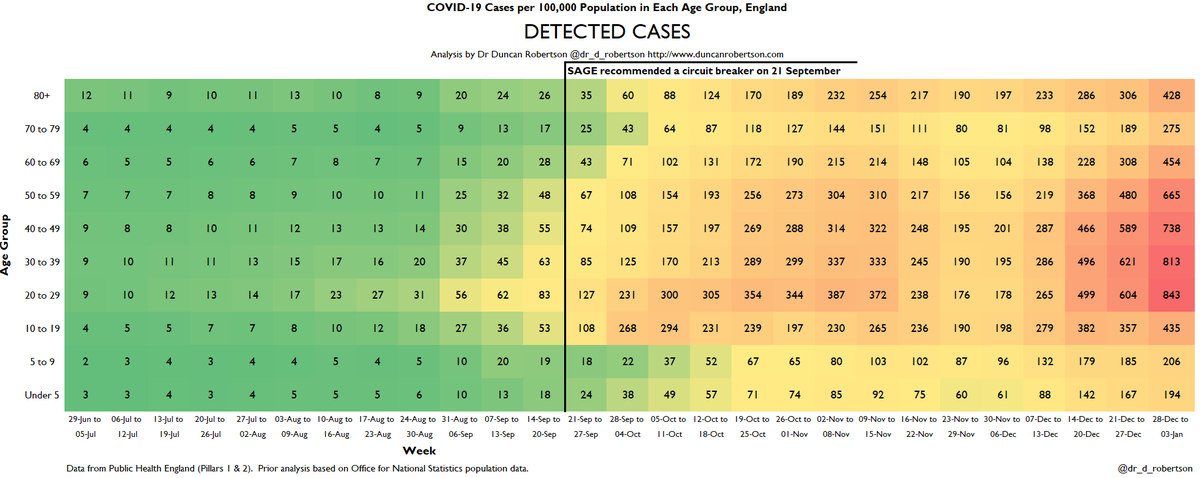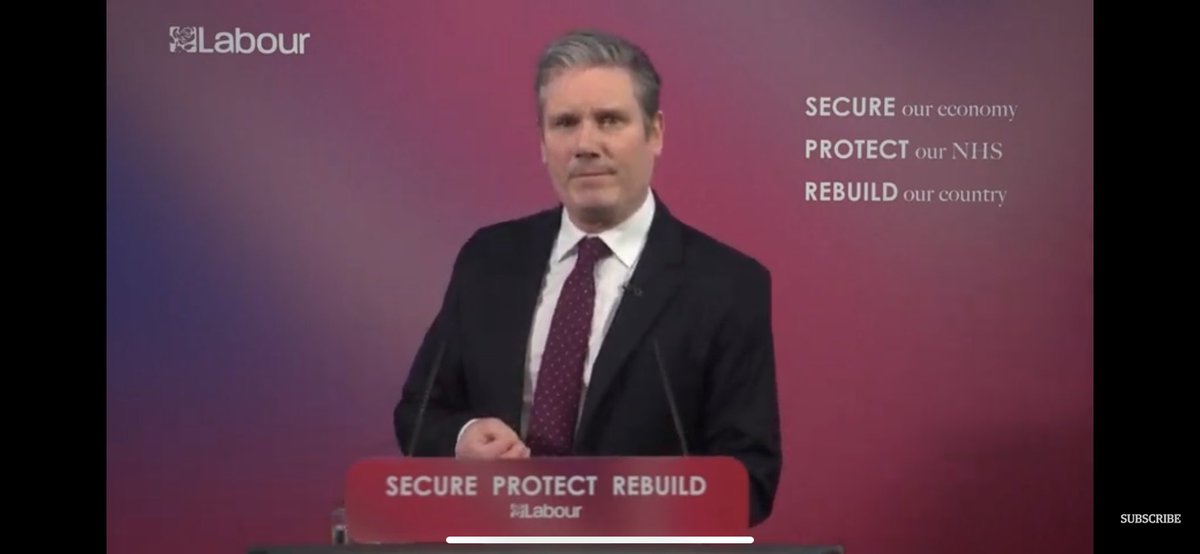How does that work? Right 2/
THREAD: British people are so thick that they will watch the government make exactly the same mistake for a fourth time, and carry on cheering. Ok, yes, you're being lied to in the press. But the opposite of "opening up as quickly" is not "lockdown forever". Here's why: 1/
How does that work? Right 2/
Sounds familiar doesn't it. It's exactly what we did in November through to now. First we went into lockdown, then we released it too early (at the beginning of December). As a result, cases spiked. By the end of December there was an enormous wave 4/
I want you to cast your mind back to June last year. Think about how excited everyone was to come out of lockdown. The newspapers had been pushing hard to get things opened really quickly fast. So was the government. “The end of lockdown” 7/
So what's the 10/
It's worth saying that those people who believe in “protecting the vulnerable” and then letting 13/
So what needs to happen? Firstly, the idea of trying to open everything as quickly as possible needs to be 16/
Secondly, we should lockdown for a few extra weeks to prevent more lockdowns and 18/
Thirdly, we should look at what worked at wasn’t lockdowns in other places. Really the main thing that proved effective was isolating infected people away from their homes in quarantine centres, instead of “self-isolation.” Turns out we 21/
Fourthly, we should have 22/
Fifthly, try to 24/
It feels so ridiculous having to 25/
And before I get a whole lot of butthurt comments about how awful lockdown is, I know. I have been 26/
As for vaccines: we really need more data to be released urgently. It seems like some of the vaccines prevent a lot of transmission while 27/
More from Government
A thread.

The Government's strategy at the beginning of the pandemic was to 'cocoon' the vulnerable (e.g. those in care homes). This was a 'herd immunity' strategy. This interview is from
Government #coronavirus science advisor Dr David Halpern tells me of plans to \u2018cocoon\u2019 vulnerable groups. pic.twitter.com/dhECJNbmnI
— Mark Easton (@BBCMarkEaston) March 11, 2020
This strategy failed. It is impossible to 'cocoon' the vulnerable, as Covid is passed from younger people to older, more vulnerable people.
We can see this playing out through heatmaps. e.g. these heatmaps from the second
Here are the heatmaps for Covid detected cases, positivity, hospitalizations, and ICU admissions. This is for the week to 3 January 2021.
— Dr Duncan Robertson (@Dr_D_Robertson) January 7, 2021
I have marked a line on 21 September, when SAGE recommended a circuit breaker, so you can see how the situation has deteriorated since then. pic.twitter.com/SEEVgUVK4j
The Government then decided to change its strategy to 'preventing a second wave that overwhelms the NHS'. This was announced on 8 June in Parliament.
This is not the same as 'preventing a second wave'.
https://t.co/DPWiJbCKRm

The Academy of Medical Scientists published a report on 14 July 'Preparing for a Challenging Winter' commissioned by the Chief Scientific Adviser that set out what needed to be done in order to prevent a catastrophe over the winter
One thing civil servants learn is to write things down. Here is @acadmedsci's 14 July report commissioned by @uksciencechief. For the record.
— Dr Duncan Robertson (@Dr_D_Robertson) September 17, 2020
You May Also Like
To me, the most important aspect of the 2018 midterms wasn't even about partisan control, but about democracy and voting rights. That's the real battle.
2/The good news: It's now an issue that everyone's talking about, and that everyone cares about.
3/More good news: Florida's proposition to give felons voting rights won. But it didn't just win - it won with substantial support from Republican voters.
That suggests there is still SOME grassroots support for democracy that transcends
4/Yet more good news: Michigan made it easier to vote. Again, by plebiscite, showing broad support for voting rights as an
5/OK, now the bad news.
We seem to have accepted electoral dysfunction in Florida as a permanent thing. The 2000 election has never really
Bad ballot design led to a lot of undervotes for Bill Nelson in Broward Co., possibly even enough to cost him his Senate seat. They do appear to be real undervotes, though, instead of tabulation errors. He doesn't really seem to have a path to victory. https://t.co/utUhY2KTaR
— Nate Silver (@NateSilver538) November 16, 2018














